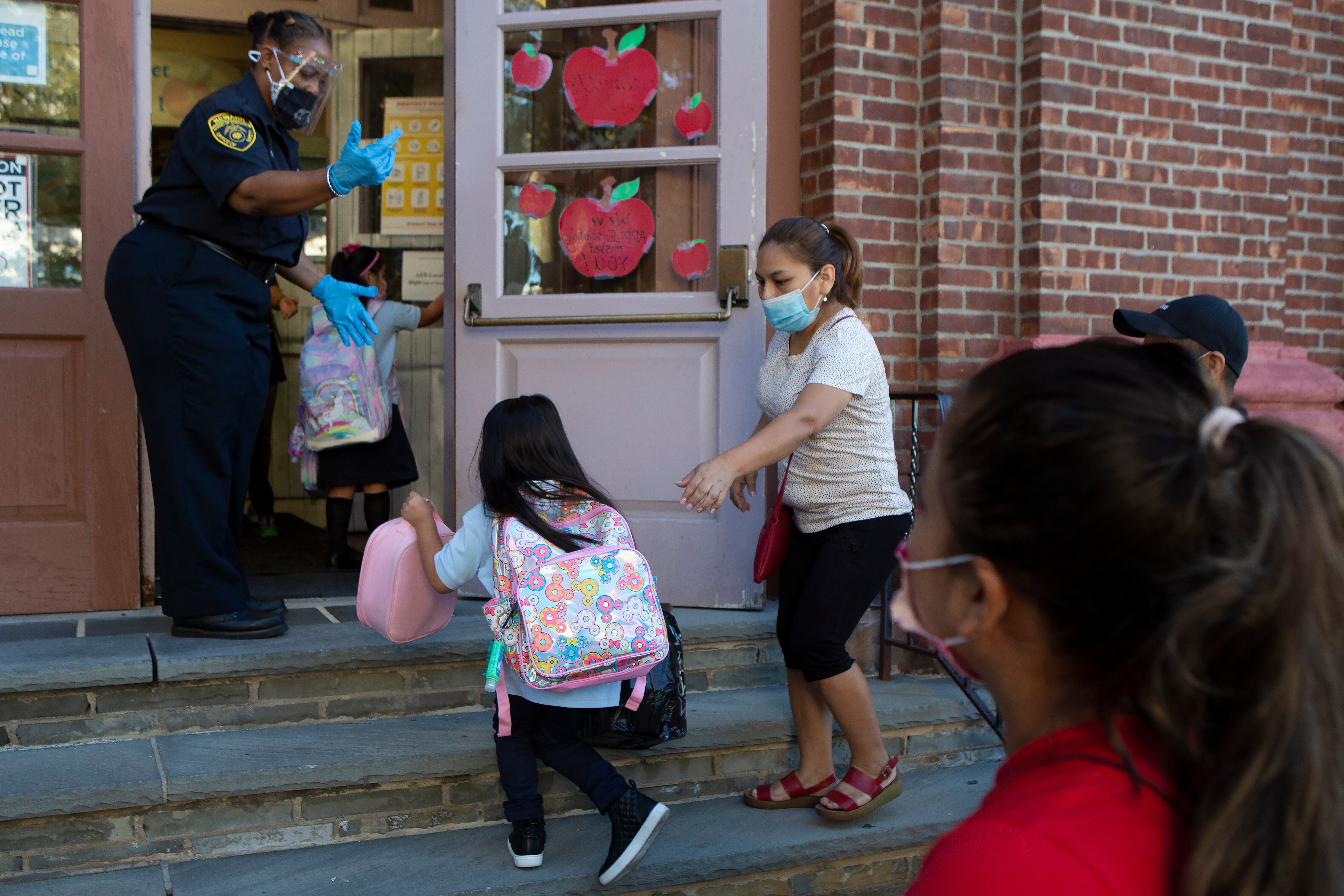The Detroit school district is taking a different approach to keeping schools safe by reducing the role of its armed police officers and shifting more responsibilities to unarmed security guards.
The change is part of an ongoing district effort to put more emphasis on building relationships, diffusing difficult situations, and restorative rather than punitive practices.
To reflect the shift, the district’s police department has been rebranded as the Department of Public Safety, Superintendent Nikolai Vitti announced in October.
In an email to Chalkbeat, Vitti provided more detail about the reorganization: Rather than being permanently placed in schools, armed district officers will routinely patrol neighborhood high schools in response to large fights and allegations of criminal activity. Security guards would become the “primary safety position to support schools” on a daily basis, to be tasked with monitoring hallways and cafeterias and diffusing fights if necessary, Vitti said.
“We do not need an armed officer to do those things,” Vitti said.
The changes in Detroit come as districts across the country reduce their reliance on armed officers or remove them altogether, a movement that picked up momentum last year amid protests against racist policing sparked by the murder of George Floyd in Minneapolis.
Vitti declined to provide details about jobs and positions that may be eliminated in the restructuring of the department, which now numbers about 70 people. The district is eliminating a number of central office positions and titles to provide more direct support to schools, he said.
The makeover of the department should be complete by the end of the fiscal year, Vitti said.
Detroit Public Schools Community District has traditionally had its own police department, separating it from other Michigan school districts that contract with local police departments for security. The district in the past primarily relied on contract security guards, but in recent years has pivoted to hiring security guards as staff.
“Our officers have to be trained and think more like guidance counselors, social workers, [and] teachers than police officers,” Vitti said.
The district is poised to be fully staffed with security guards this month, Vitti said, following a recent hiring spree in response to staffing shortages. Since the beginning of the school year, the district has hired 40 new security guards at a new pay rate of $16 an hour, with an additional 20 to 30 on track to be hired.
Vitti reiterated that emphasis will be placed on instructing security guards on the district’s code of conduct, restorative justice practices, de-escalation training, and interacting with students with behavioral or development issues.
“As public safety officers in our district and in our schools, they can build relationships with students and they can build relationships with personnel,” Vitti said.
“They can diffuse issues, de-escalate issues, and not come in response to an issue without background knowledge of what’s happening in the building or among certain students.”
School safety has long been an important issue for Detroit parents choosing where to enroll their children, and students have been increasingly vocal on the issue, as well.
“I think officers can actually better regulate the school, keep the school in shape,” said Jalen Garrett, a student at Martin Luther King High School, a selective admissions school.
Garrett said most of his interactions with officers occurred at the front desk, where they are in charge of monitoring metal detectors and conducting temperature checks.
Jessica Mason, a student at Benjamin Carson High School and a youth organizer with education advocacy group 482Forward, largely agrees with the district’s changes.
“We would rather have a relationship than feel like we’re being policed inside of our schools, not knowing who’s telling us what to do, when to do it, how to do it, where we are going, and we don’t even know the person,” Mason said.
In the summer of 2020, Mason along with 482Forward launched a “Counselors not Cops” campaign, pushing for the district to divest in school police and put money toward adding school counselors.
“If we have a counselor, we can grow and talk to our counselors, the counselor will check up on us,” Mason said.
“Instead of telling us ‘this is wrong, don’t do this, don’t do that, follow this’, we got somebody who will discuss our needs and problem-solve with us, which helps us figure out what we should be doing … giving us ideas instead of demanding us to do something.”
The district does not currently have any plans to replace officers with counselors, but Vitti noted that the district has increased its number of counselors and social workers over the past several years. COVID relief funds are being used to contract “small group mental health support” through regional partners in each school.
In the short term, the superintendent said the district “cannot afford to increase our recurring expenses by hiring more counselors.”
Mason contends counselors would be far more effective than public safety officers in reducing and preventing student fights and misbehavior.
“People feel like officers make them feel more safe, more protected inside of school,” she said.
“But in reality, to me, I feel like they do more harm to children than protecting them.”







